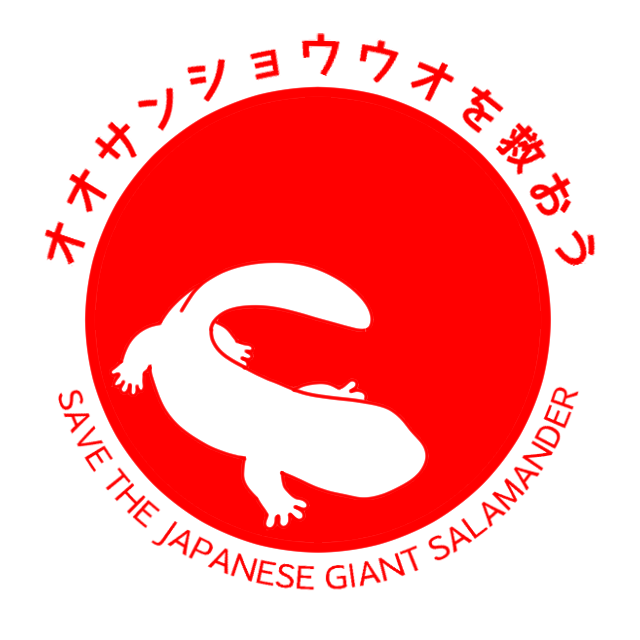URGENT JGS Conservation Update
I have an urgent announcement to make. The situation for the Japanese giant salamander (JGS) has officially deteriorated. It has been officially announced by the IUCN (see below for more information) that the conservation status for the JGS has changed from “Near-threatened” to “Vulnerable”. This means that the scientific community recognises that the chance of the JGS becoming extinct in the wild is high. This clearly demonstrates that the protections put in place to protect and conserve the JGS by the central government in the past have been hugely insufficient. In fact, as this reassessment of the conservation status proves, the situation has gotten worse.
When I started out on this journey to help the Japanese giant salamanders of Mount Daisen and improve the environment which we share with them, I was convinced that if more people knew about the true situation here then surely more would be done to improve it. After all, Japanese giant salamanders are a truly special creature. And Daisen, beautiful, sacred Daisen. Surely those who know about it would do all they can to protect it.
Within the local community and even across Japan, it has been quite difficult to get people to care enough to actually do something about it. I came to a realisation that getting the word out to as many people as possible wasn’t the only thing needed to be done. Another way to approach this problem was to focus my time on reaching out to leading researchers, amphibian experts and conservation organisations around the world, particularly outside of Japan. I connected with some very interesting and great minds in various corners of the world. I travelled to London to meet with charitable organisations and to talk with representatives of zoological societies. I had Zoom chats with experts in the US, China and Australia. Finally, after hundreds of hours spent at my computer and thousands of emails I found exactly who I needed to connect with: The IUCN SSC Amphibian Specialist Group.
As per their website, “the IUCN SSC Amphibian Specialist Group (ASG) is the International Union for Conservation of Nature’s (IUCN) global volunteer network of dedicated experts who donate their time and expertise to create a community from where practical amphibian conservation can be advanced based on a solid foundation of science. This network currently consists of over 300 members in over 40 Regions/Countries, enabling the ASG to act on a global scale”.
More simply put, the IUCN is a group of leading researchers that are committed to the conservation of the animals they research. Unfortunately, although many researchers study the Japanese giant salamander, there is little focus on conservation of the species. In a country like Japan where speaking up is discouraged and the “majority is always right”, this can be a real problem as it means that groups taking positive action are actively discouraged or even obstructed.
A leading Chinese giant salamander researcher from London Zoo suggested that I contact the Secretariat of the IUCN SSC ASG. Since the very first message I sent, the Group Chair (Dr. Ariadne Angulo) and the Deputy Chair (Dr. Amael Borzëe) have been nothing short of amazing with their support. We have been working on a White Paper (Government Policy Recommendation) for several weeks and it will be submitted for review in the New Year.
A few weeks ago, Dr Borzee flew in from his university in Nanjing, China to examine the JGS habitat here for himself and offer his support. It was truly an honour to introduce him to the area and of course the JGS themselves. Whilst he was saddened to see the condition of the habitat in the main river, he was heartened and excited about the prospect of various future studies and actions, especially in and around our sanctuary area. He proposes to come back regularly and to personally lead and advise on various projects and studies, including on how our organic farming project will improve the condition of the area for all species within it. Other leading amphibian, bird and reptile experts from around the world have already signalled their interest in helping out.
Finally, I feel we may have just put our project firmly on the global stage and connected with exactly the right people.
*Additionally, please keep an eye out in January for articles about our projects in The Guardian and The Japan Times.
